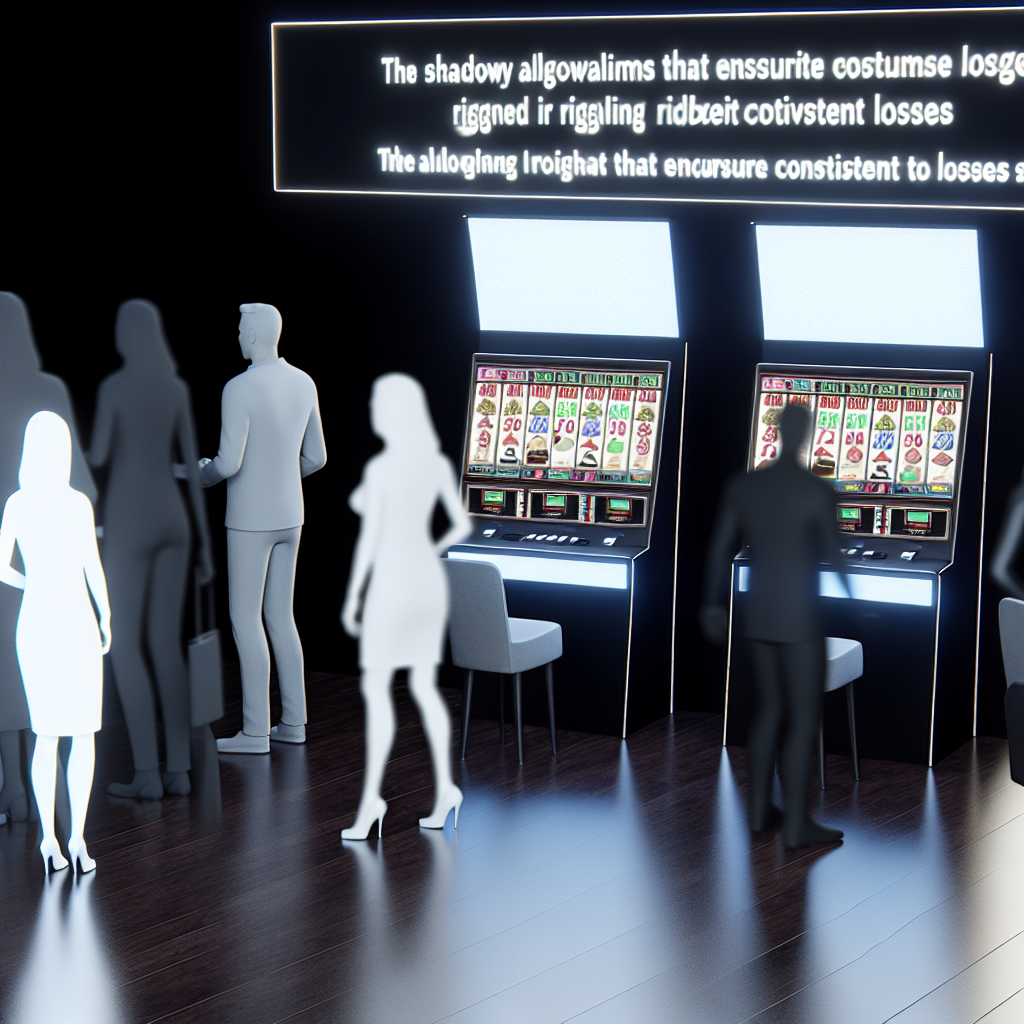
The allure of slot machines is undeniable. Yet, an underlying question persists.
Rigged Slots 2025: Frameworks and Applications
In the ever-evolving realm of gaming, the concept of “Rigged Slots 2025” surfaces with intriguing implications. As technology advances, so does the sophistication of algorithms that govern slot machines. These algorithms are crafted to ensure fairness and compliance with regulatory standards, yet the perception of rigged slots remains a topic of debate among players. The mechanics of these machines are largely defined by random number generators (RNGs), which are designed to produce unpredictable results. However, understanding their operation is essential to demystifying the perceived discrepancies in player outcomes.
What makes these slots seem rigged? It’s often the intricate balance between randomness and the house edge that fuels this perception. While the house edge is an inherent aspect of casino games, players sometimes misinterpret normal statistical variance as signs of manipulation. It’s crucial to note that, from a regulatory standpoint, any rigged operation would violate gambling laws across jurisdictions. This is not a legal opinion.
Operational Pitfalls to Consider
Slot machines are intricate systems, and their operation involves more than just the spin of the reels. Pitfalls in operation can arise from both technical malfunctions and the human factor. For instance, software glitches or improper machine calibration can lead to discrepancies in payouts. These issues, while technically possible, are generally rare due to stringent regulatory oversight and rigorous quality checks. Casinos invest heavily in maintaining operational integrity to uphold their reputations and licenses.
Furthermore, the psychological aspect of slot gaming cannot be overlooked. The sensory experience—flashing lights, engaging sounds—can make players perceive patterns or luck, which are in reality products of chance. This sensory design, while enhancing entertainment, can sometimes lead to misinterpretations of the machine’s fairness.
Monetization Models: Where Value Accrues
Monetization in the world of slot machines is meticulous, threading through both player engagement and house profitability. Casinos implement various models to maximize return on investment, including progressive jackpots and bonus rounds, which increase player retention by offering the allure of bigger wins. These elements are carefully balanced with the house edge to ensure sustainable revenue.
In practice, the value accrues not just from direct play but also from the extended time players spend engaging with the machines. This engagement is crucial for casinos, as it translates into consistent revenue streams over time. Notably, understanding these monetization models offers insight into why slots operate as they do, further clarifying the mechanics behind “Rigged Slots 2025” and demystifying the perceived unfairness.
In summary, while the perception of rigged slots persists, it is often a misinterpretation of the complex interplay between randomness, house edge, and player psychology. Understanding the frameworks, operational dynamics, and monetization strategies offers a clearer perspective. Keep up with evolving Rigged Slots 2025 angles — join CasinoVVV updates.
Are slot machines rigged to make you lose?
Slot machines are designed with a house edge, ensuring the casino profits over time, but they are regulated to ensure fairness and randomness.
How do slot machine algorithms work?
Slot machines use a Random Number Generator (RNG) to ensure each spin is independent and random, making it impossible to predict or alter outcomes.
What is the 'house edge' in slot machines?
The house edge is the mathematical advantage the casino has over players, ensuring the casino earns a profit over time despite short-term player wins.
Can casinos manipulate slot machine algorithms?
Regulatory bodies oversee casinos to ensure that slot machines operate fairly, with strict rules preventing unauthorized manipulation of algorithms.
What role do Return to Player (RTP) rates play in slot machines?
RTP indicates the percentage of wagered money a slot is programmed to return to players over time, but it's theoretical and doesn't guarantee specific outcomes.
Authored by CasinoVVV’s official editorial team, ensuring every article reflects clarity, depth, and reliability for the global gaming community.
Read also: AI Dealers In Modern Casinos: Between Efficiency And Human Touch • Smart Casino Tables Technology 2025 Explained
